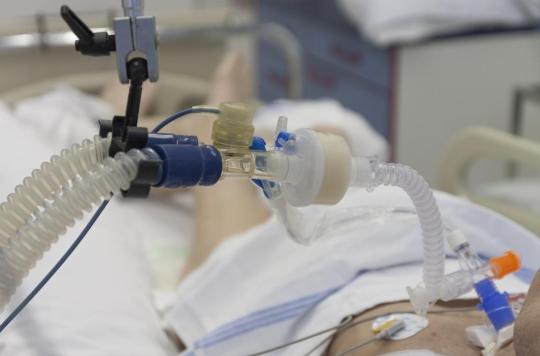The decision to “disconnect” Titouan, according to the parents’ wishes, was taken according to a well-defined protocol framed by law. Explanations.

“The Titouan affair” will continue to generate much ink. This very premature baby weighing 900 grams, born almost four months before term, died at the Poitiers CHU. His parents demanded that treatment be stopped and denounced a form of therapeutic relentlessness.
Why did the doctors accede to their request? What happened during these two weeks? How were parents involved in the decision-making process? Elements of response with health professionals, confronted daily with these situations.
Waiting resuscitation
Far from being insensitive to the pain of parents and their child, the doctors at the Poitiers University Hospital followed a well-defined procedure, inspired by national recommendations, and framed by the Leonetti law on the end of life.
For two weeks, Titouan was in “waiting resuscitation”. The delay may seem long – an eternity, even, to his parents. And yet, we can not save this time, according to Emmanuel Hirsch, responsible for the ethics area of the AP-HP.
“It is an ordeal that is difficult for parents to bear, but it is necessary. Scientific investigations take time to know what would be the possible consequences of resuscitation that would go too far, but we must prioritize the best interests of the child, ”he believes.
Listen to Emmanuel Hirsch, responsible for the ethics area of the AP-HP: “Waiting resuscitation is a French-style approach”.
Collegial ethical meetings
In general, this waiting resuscitation does not exceed one month, but some testimonials report five months of waiting, an ordeal for parents. During this period, the infant is placed on ventilatory assistance. Doctors carry out regular examinations (encephalograms, brain ultrasounds, MRI, etc.). Then, the teams meet to make a collegial decision.
“When we take care of an extremely premature infant, we know from the start that we risk being confronted with complications,” explains Jean-Claude Magny, head of the neonatal intensive care unit at Necker hospital. The medical team quickly asks the question of whether or not we are unreasonably obstinate. Parents are always consulted ”.
Listen to Jean-Claude Magny, head of the neonatal intensive care unit at Necker hospital: “There are collegial ethical meetings which allow these decisions to be taken”
Guilt
For Jean Leonetti, cardiologist and author of the law that bears his name, the Titouan case does not raise the question of therapeutic relentlessness. “We must not condemn the fact of fighting, and we cannot systematically stop resuscitation on the pretext that a child has an anomaly! The weakness of medicine is its slowness. To know if one is or not in the unreasonable obstinacy, it is case by case. “.
The parents’ opinion has, of course, been collected and heard. But to make their decision, the doctors weighed primarily medical arguments: in a few hours, Titouan’s condition deteriorated sharply. At the end of the investigations, they were able to conclude that, in fact, the child would have consequences for life and that it would be unreasonable to continue the care.
For the member of the Alpes-Maritimes, the decision to limit care must remain the prerogative of the medical profession. “You can’t ask a mother whether or not to continue resuscitating her child. It is to make him carry a guilt for life, which will be unbearable… Believe me, it is by far the most difficult case of modern medicine. “
Listen to Jean Leonetti, doctor and deputy for the Alpes-Maritimes: “No one has the right to life or death over a newborn”. Interview carried out on September 18, before the announcement of the decision of the CHU de Poitiers to “let go” Titouan.
.
















